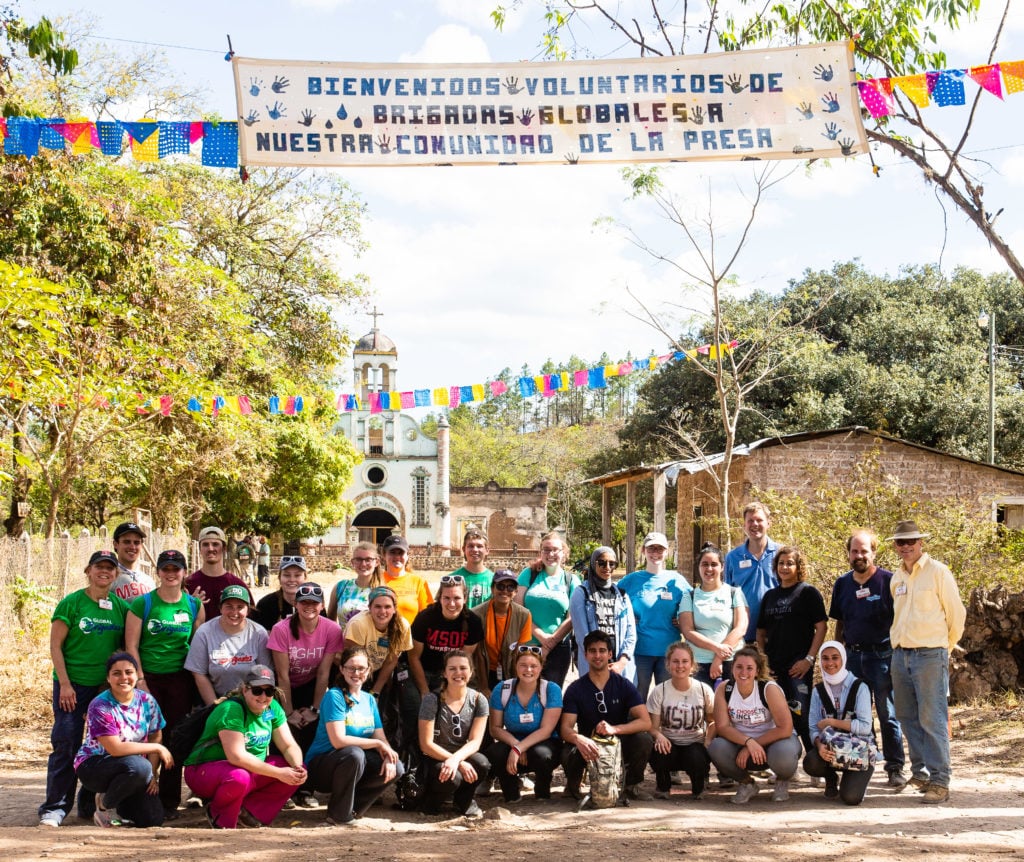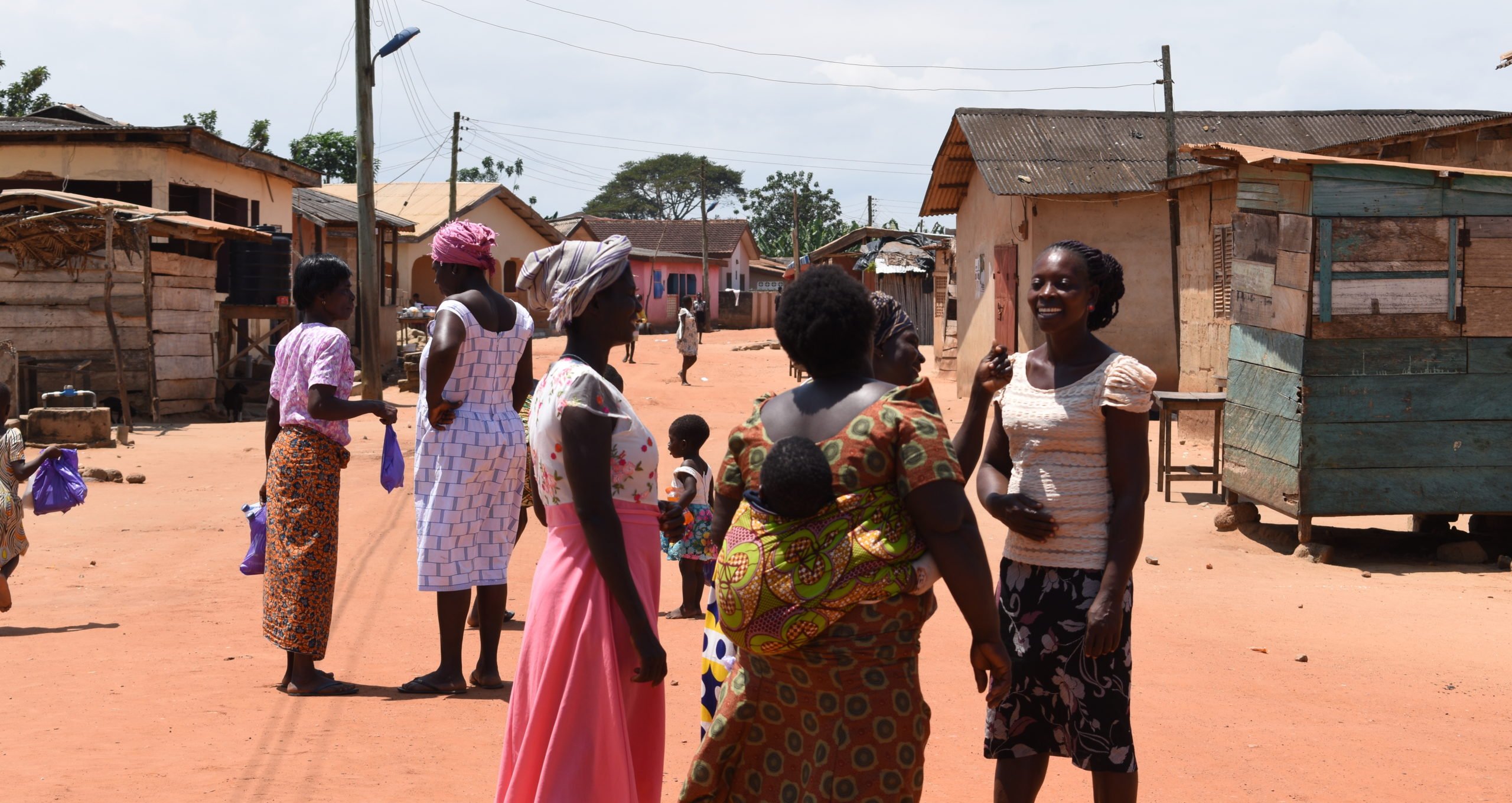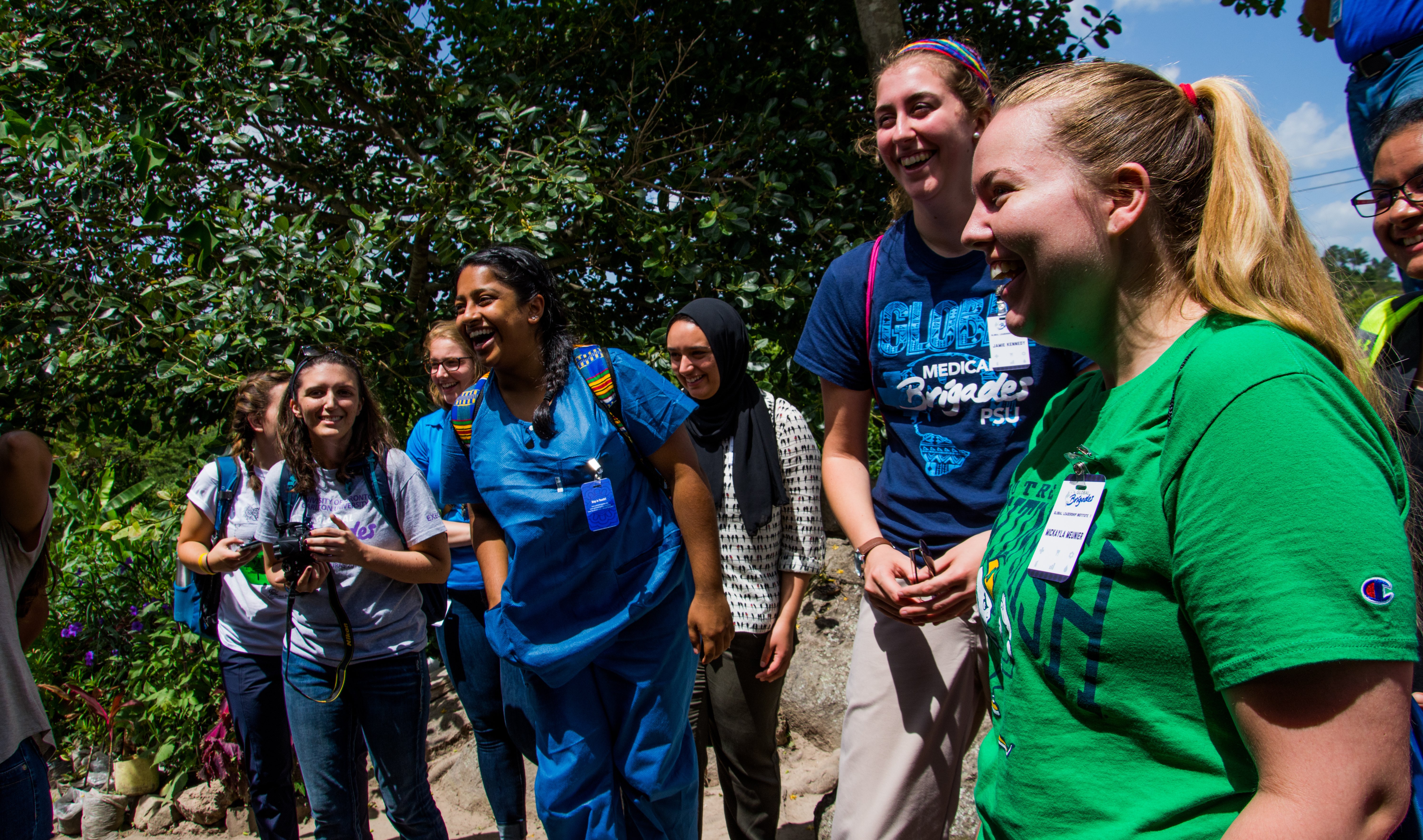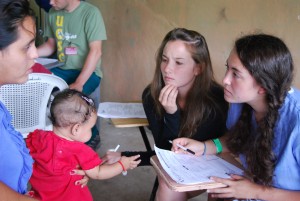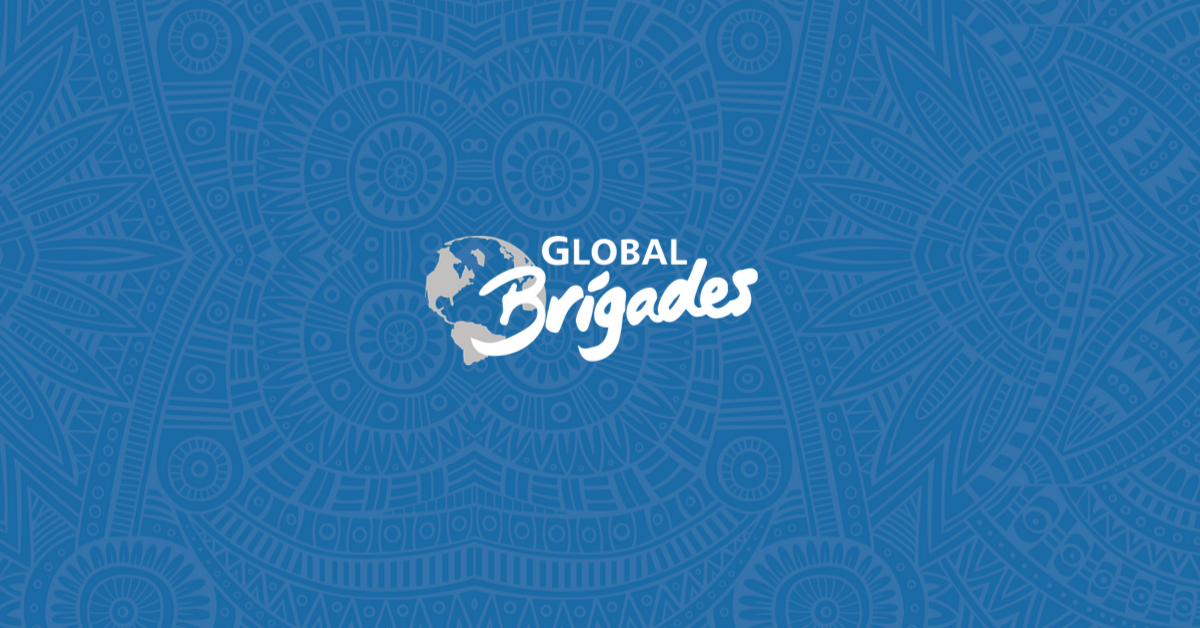By Director of Impact & Evaluation, Ben Erker
The successful implementation of The Empowered 100, Global Brigades’ commitment to empower 100 rural communities to permanently rise out of global poverty, is driven by a collaborative effort between community members, the GB team, and other strategic partners. Collaborating, especially in rural Central America and West Africa, is a challenge in the face of the global Covid-19 pandemic, which like many organizations worldwide, has impacted GB enormously. As a result of the halting of international travel and the enforcement of lockdowns not only in North America and Europe but also in programming countries, our outlook for 2020 and beyond has begun to shift. The way in which we approach The Empowered 100 is no exception. While the E100 goals are not fundamentally changing, the pandemic presents us with an opportunity to adapt and innovate how we work toward these goals.
Since its conception, The E100 was always intended to result in a blueprint, one that could be implemented sustainably to expand impact to many more than 100 communities. A key component of this has been developing programming strategies that are market-based and do not rely solely on donations. The Covid-19 pandemic has accelerated the steps that GB is taking to develop alternative programming methodologies with the aim to build new partnerships, find new operational efficiencies, and increase financial and programmatic sustainability for partner communities and organization.
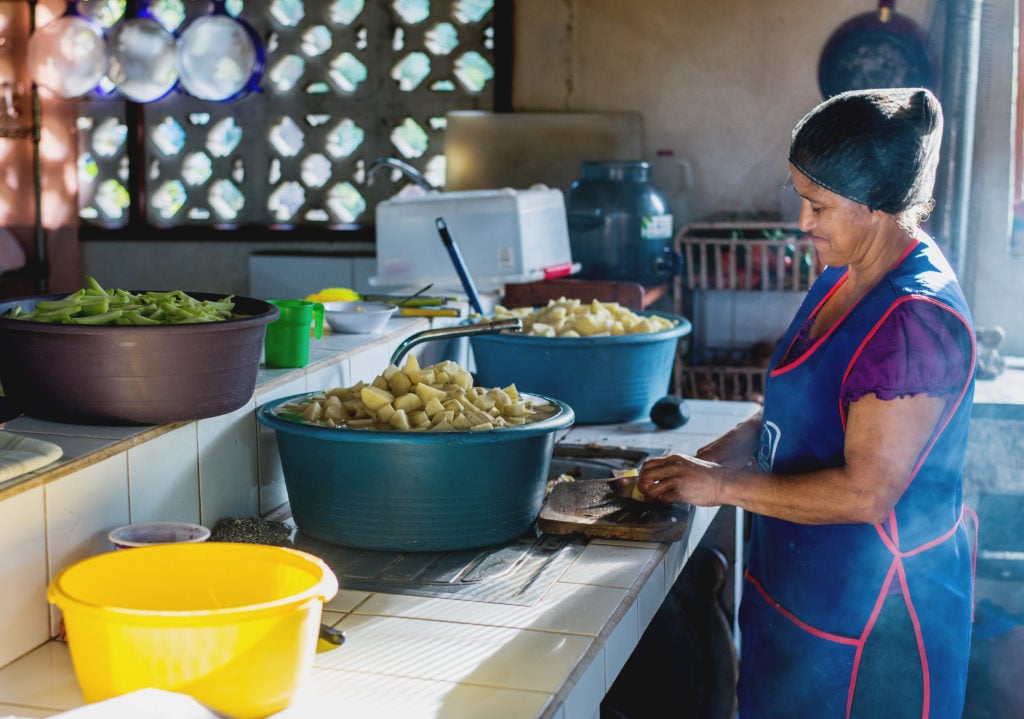
Lockdown measures in programming countries, in addition to our general concern for the health of community members during the pandemic, means that in-person community visits are very limited. So, we’ve asked ourselves, “How can we plan, implement, and follow-up, virtually?”. The result has been the creation of TeleBrigades programming to engage volunteers, staff, and community members to continue working toward E100 goals without a physical brigade in the community. Follow-up meetings with Community Bank Leaders, Community Health Workers, and Water Committees are being done over the phone, as the Monitoring & Evaluation team pilots virtual data collection methods. We are addressing technological barriers by exploring innovative telemedicine platforms and hardware solutions to increase internet access in rural partner communities. The vision is that the stable access to affordable internet will allow GB to hold high-quality virtual video conferences for community meetings and follow-up, resulting in operational savings to invest in programmatic impact.
As GB continues to work with partners, donors, and volunteers, we are also developing new strategies to empower community members while generating cost recovery opportunities for impact investment. We are implementing pilots of a redesigned sustainable healthcare access program, where healthcare professionals visit partner communities to offer consultations and medication at a low cost, much more affordable for community members than traveling from their community and paying the price of medication in a private pharmacy. Ultimately the goal is to offer medical, dental, and vision care, chronic patient follow-up, and basic medical testing.
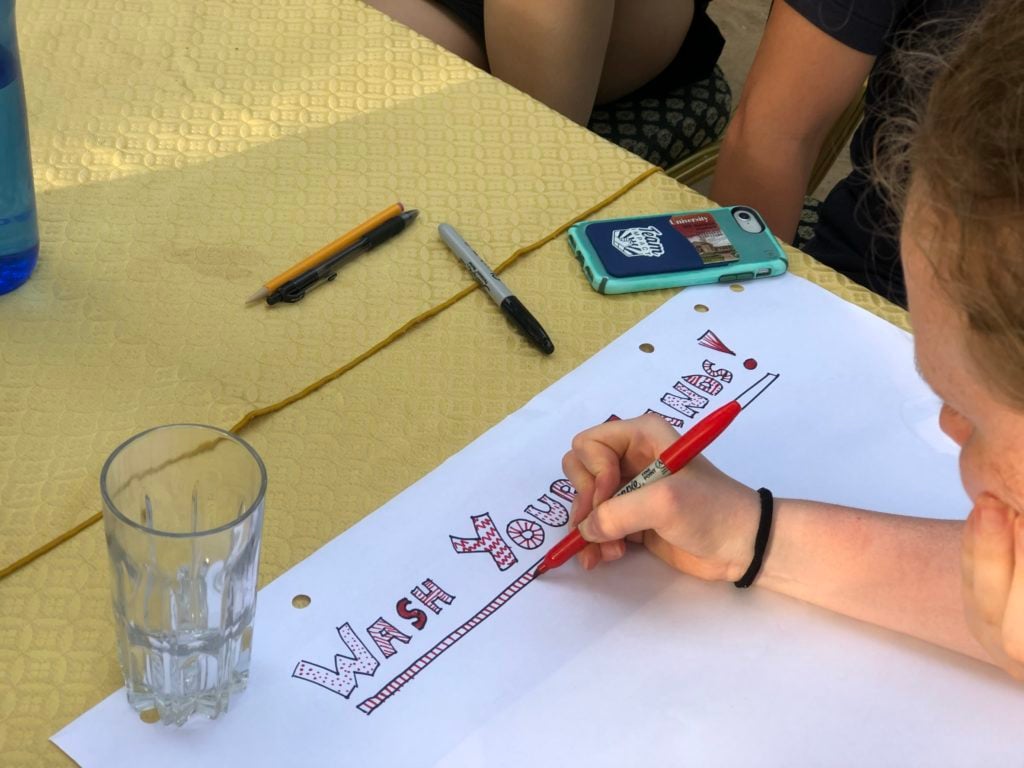
For Economic Development programming we seek to greatly expand the number of Community Banks that GB works with, and engage funding organizations such as Kiva and other social investors to provide capital in the form of low-interest loans to banks. This facilitates increased access to financial services in partner communities and strives to create a financially sustainable system capable of self-funding the technical assistance and follow-up for Community Banks. Finally, our WASH strategy moving forward is two-fold: (a) offer our technical expertise as a service to local governments, organizations, and companies seeking to develop WASH infrastructure in rural communities and (b) allocate loan capital for communities to apply for low interest, long term group loans to repair, expand, or construct new WASH infrastructure.
The Empowered 100 was started to formalize a model and strategy for sustainable development in GB partner communities. Little did we know that a global pandemic would play a role in shaping the methods developed to tackle this challenge. Innovating was always going to be important to create our community development blueprint, and the Global Brigades team is now more dedicated than ever to making this happen.
To learn more about Global Brigades’ unique community development model, the Empowered 100, and to join the movement, visit us at globalbrigades.org!
